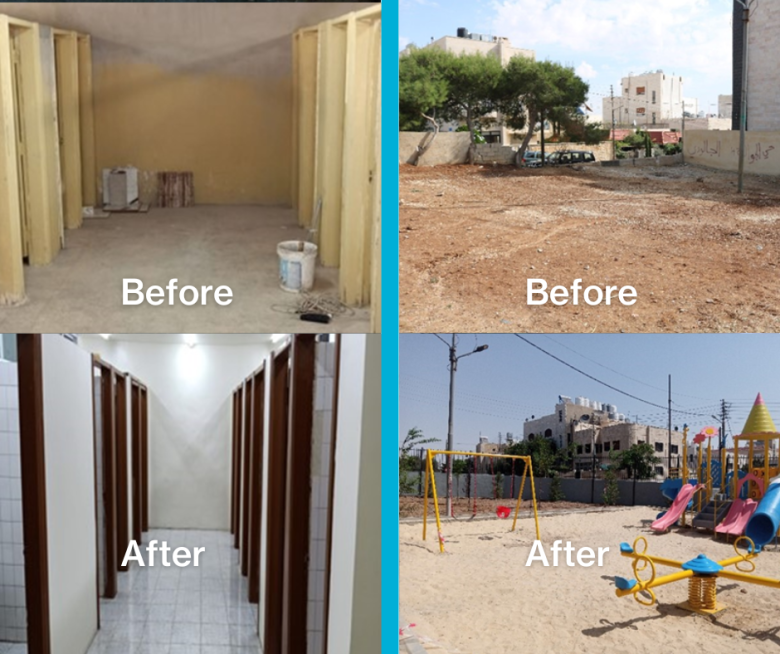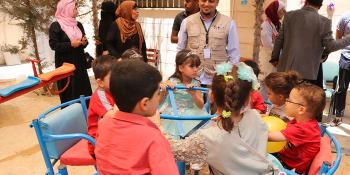
Jordan's Middle East Refugee Crisis Initiative (MERCI). Addressing the Challenge of Decent Housing
JULY 15, 2024
Jordan, home to one of the highest per capita shares of refugees in the world, faces significant challenges. Out of its 11 million population, one-third are refugees from neighboring countries like Palestine, Syria, and Iraq. Most have arrived in the last two decades due to regional conflicts, exerting immense pressure on the country’s public services, energy resources, and notably its water supply, as Jordan is one of the most water-scarce nations globally.
For low-income families, securing decent housing is a major challenge due to economic conditions. With an unemployment rate of approximately 26%, over 2 million Jordanians lack access to affordable housing, and 1.36 million live in poor conditions. According to the UNHCR, 80% of refugees in Jordan live below the poverty line, including 60% who live in extreme poverty.
Middle East Refugee Crisis Initiative (MERCI)
Launched in 2018, Habitat for Humanity Jordan’s MERCI program aims to enhance the living conditions and well-being of refugees and vulnerable groups by creating safer, more resilient homes and improving access to water and sanitation. The project primarily targets urban areas with high population density and inadequate infrastructure. Many homes lack clean water, proper sanitation, and reliable electricity, severely impacting the health and well-being of residents. Additionally, poor construction and the absence of essential amenities such as doors, windows, and ventilation lead to illnesses and hazardous living conditions. Economic barriers, especially pronounced for female-headed households, refugees with limited employment opportunities, people with disabilities, and the elderly, complicate access to necessary renovations.
Types of Renovation
The program focuses on the most vulnerable groups in Jordan, renovating homes to meet basic health and safety standards. This begins by collaborating with the local community to identify at-risk households. Engineers then meet with families to understand their concerns and assess homes, determining the most pressing issues and possible interventions to enhance living conditions. The renovations, which are environmentally conscious, utilize low-cost, eco-friendly construction techniques.
Renovations vary but typically include installing or repairing doors, windows, and roofing, remodeling bathrooms, fitting kitchen cabinets, and conducting mold remediation. A significant upgrade in many homes is the installation of proper insulation, previously nonexistent, which has led to reduced heating and cooling costs. After these improvements, residents have reported enhanced comfort and a 10% reduction in energy bills. Another critical issue is outdated pipelines that contribute to water wastage. Given Jordan’s limited water supply, many residents face regular shortages due to inadequate piping. However, pipeline repairs through the MERCI program have resulted in a 34% reduction in water usage and significantly fewer water outages.
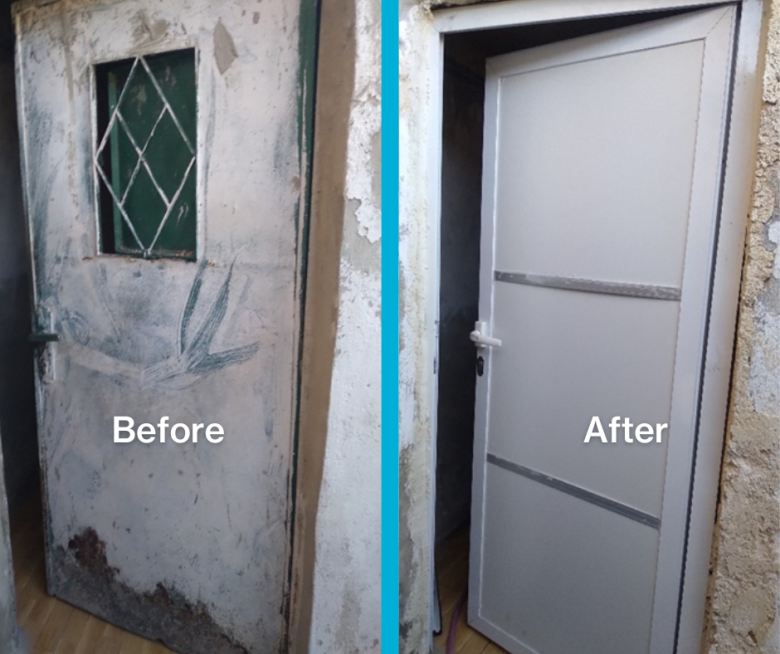
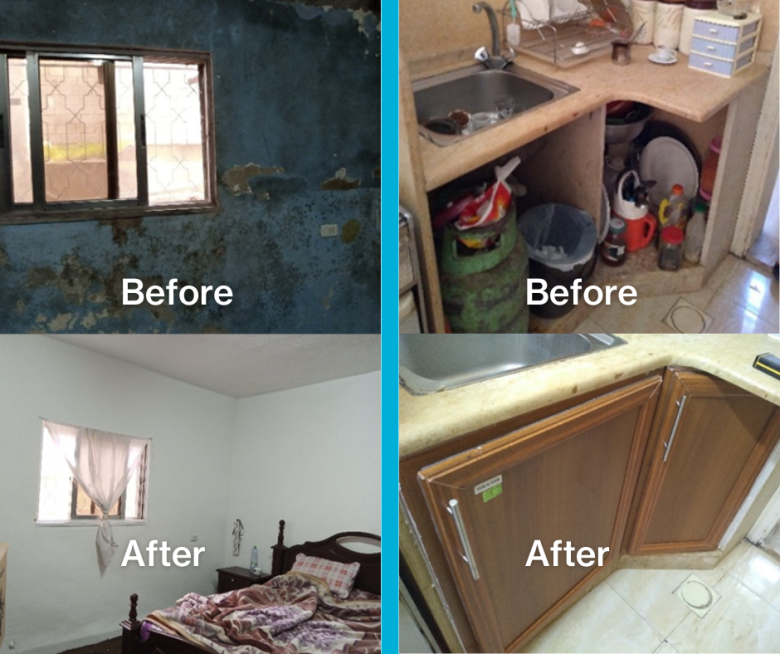
Impact on Families
Malath Al Zain, a Syrian refugee, and his family are beneficiaries of the project. Displaced for years in Syria, they arrived in Jordan in 2012 and initially lived in Zaatari camp. Due to limited opportunities, they moved to Amman, living in a dilapidated flat with inadequate basic amenities. The poor living conditions impacted their health, particularly their daughter Farah, who frequently missed school due to illness. Malath, a street vendor, struggled to improve their living situation. The family suffered from unsafe conditions, including broken doors and windows and an abundance of insects.
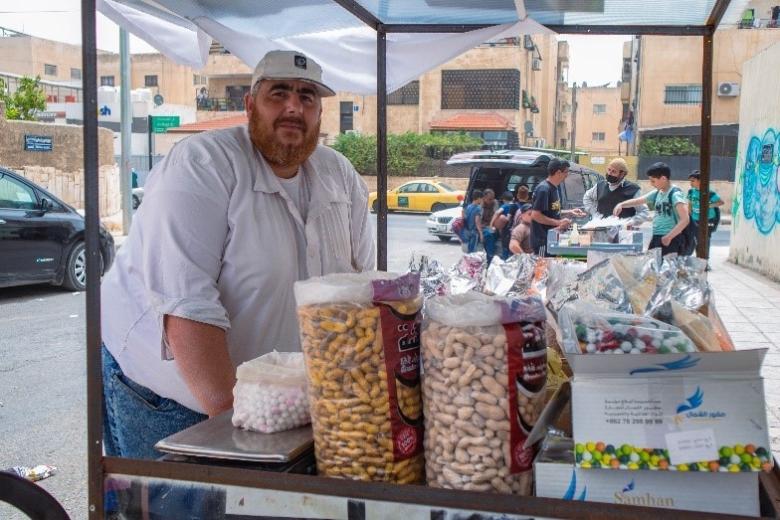
Malath Al Zain
Malath’s wife shared, “It was really difficult to feel safe at home. We had no privacy, and I constantly feared for our safety, especially because the house was always filled with insects. Winters were the hardest; we never managed to warm the house, always huddling under blankets.”
Habitat’s team intervened by repairing the basic amenities of their home, enhancing safety and privacy. Farah expressed, “I never felt comfortable at home. Now, I can comfortably sleep, study, and play—a first for me.” The renovation also included crucial improvements to the kitchen by installing cupboards and addressing basic necessities, critical for the family’s livelihood.
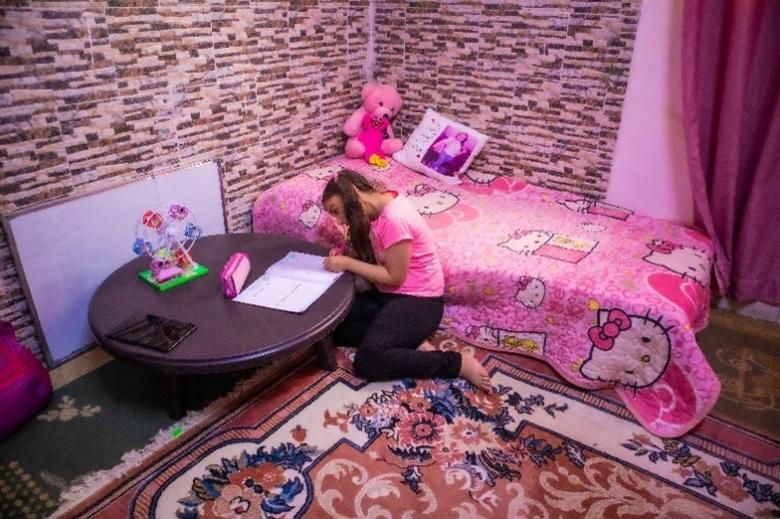
Farah
In another part of Amman, Feryal, an Iraqi widow, also benefited from the program. She struggled with safety and security in her small apartment due to broken windows, a missing front door, and a sloped cement floor. After receiving a new window, tiled floor, painted walls, and repaired toilet, Feryal stated, “I used to avoid staying at home because it felt unlivable and unsafe. Now, I feel secure and sleep better, knowing I can lock my front door and shut my windows.”
Visiting Feryal now feels welcoming, as she opens her home to share stories of Iraq, her childhood country. Her home’s warmth and her hospitality, highlighted by her quirky plant friend “Hajji Dadoo,” make guests feel instantly comfortable.
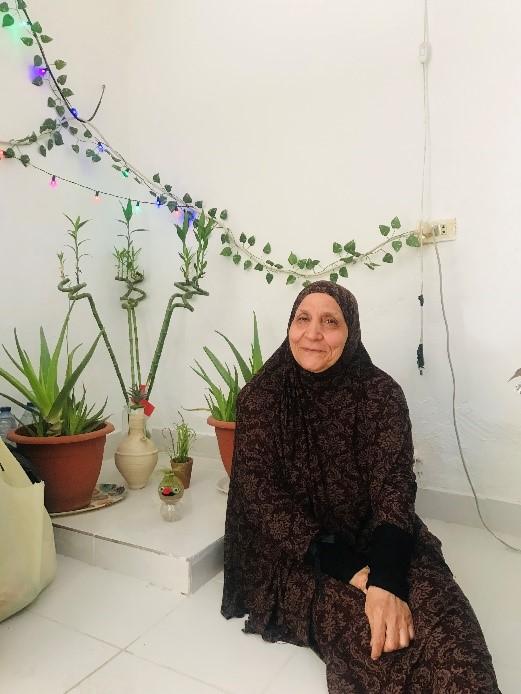
Feryal
Communal Projects
The MERCI program also includes communal projects to address overstretched local facilities and integrate residents into a larger community framework. Through the program, 300,000 individuals have benefited from various interventions. One such effort involved a CBO that serves 250 beneficiaries annually, with 150 being refugees. Maintenance work on the CBO’s building, updates to the kitchen’s water network, and improvements to hygiene facilities and outdoor spaces have made a substantial difference, especially for children and the elderly. To learn more about the MERCI program, read more in our fact sheet.
